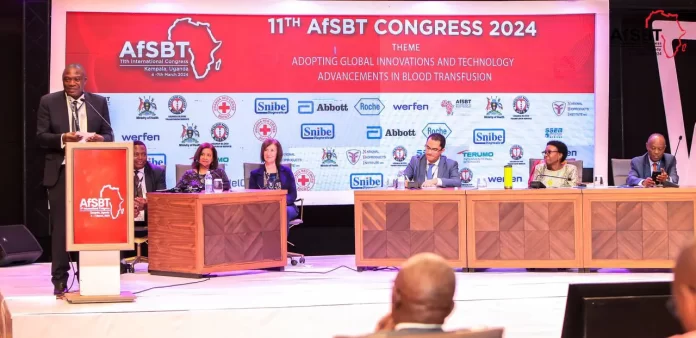The Minister of Health, Dr. Jane Ruth Aceng, who also doubles as the Woman Member of Parliament for Lira city, has acknowledged that blood transfusion is a vital component of a health centre.
Dr. Aceng, who was officiating the 11th International Congress of the Africa Society for Blood Transfusion (AfSBT) that took place on March 4, 2024, at Speke Resort Munyonyo, attributed the blood transfusion’s indispensability to the increased cases of anaemia and haemorrhage in the health centres that require blood transfusion.
“The high burden of severe anaemia and hemorrhagic conditions requiring blood transfusion has made transfusion an indispensable component of any healthcare system, without which many patients may not survive,” Dr. Aceng said.
The Minister noted that, in Uganda, a large amount of blood is used, yet regrettably, a significant amount is also wasted.
Aceng urged clinicians to use the opportunity to share knowledge and best practices and explore innovative solutions to the challenges facing transfusion medicine in Africa.
Dr. Dorothy Kyeyune, the Executive Director of Uganda Blood Transfusion Services, explained wastage as giving blood to a person who may not badly need it.
“Before you transfuse a patient, think twice about whether this patient really needs this blood and if he can survive without this transfusion. That’s when you’ll decide whether to give the blood or not. By doing that, blood will be adequate for only those patients who need it,” she noted.
In 2020, 38 African countries recorded a combined shortfall of three million units. According to reports by the Ministry of Health, low-income countries have a donation rate of 6.6 per 1000 people, which is lower compared to a rate of 31.5 in high-income countries.















